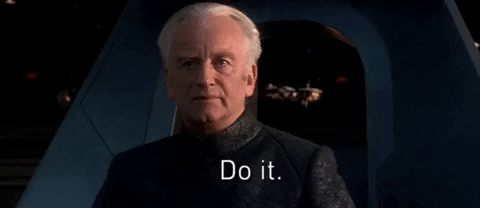I thought this movie showed potential to be worthwhile but ended up being almost entirely pointless. I was actually loving the first 30 minutes or so because it seemed to be going in a bold direction and reframing what the Matrix is. I thought we were actually getting something intelligent and thought-provoking to justify its existence. Instead, the film pivots and goes back to being nothing more than a slightly tweaked rehash of the first three. It's the same thing, but just dressed differently.
It's also one of the most self-indulgent films I've ever seen. So much of Neo's dialogue is Wachowski providing self-reflection, with Neo as an avatar of sorts, and allowing it to be totally blatant as if the facade of the film being "self-aware" will justify it being a vanity project. So, the lack of subtlety in using the plot to make an allegory about the director's journey of "self discovery" ends up being the only mind-blowing thing about the entire endeavor. Which leads me to the ending and why I love how hilariously oblivious and hypocritical it is...
It ends with Neo and Trinity in full control over defining the "reality" of the Matrix. They're going to rewrite the code to construct a world where people will be "liberated" and happy. But there's nothing liberating about it. They jokingly refer to a sky full rainbows as if that would somehow make the fact that all of the people would still be living in a false construct more palatable in principle. It isn't.
At the end of the day, having Neo and Trinity (in their new state of harmonized duality) create a reality free of conflict and strife is fundamentally the same thing that the Matrix had always been: a false reality where the preferences of the programmer decide how people will live their lives. The fact that Neo and Trinity think of themselves as "good" or "virtuous" doesn't change the underlying problem of playing God (be it a man or machine one) with people's lives. Spare me, please.
A movie that spends part of the time being self-aware of both the redundancy of sequels and of the blatant manipulation of using nostalgia, then goes on to spend the rest of the time being almost entirely redundant and manipulative. And I don't think Wachowski is being as self-aware ironic in doing so as some might want to attribute. This was ultimately all just an exercise in self indulgence, with that being the first and foremost ambition.
This is a brilliant review. I know its true and I haven't even seen the movie. But I've seen Lana. And I know people. She's like that clique in school who wanted to be 'different' -- and yet they all had the same wardrobe that assigned them as 'different', like a uniform... therefore NOT different.
In reference to the "rainbow sky" -- the idea that "they" know what's good for you. Isn't this what people hate about both sides? Always!?
There's some perfect lines in this:
A movie that spends part of the time being self-aware of both the redundancy of sequels and of the blatant manipulation of using nostalgia, then goes on to spend the rest of the time being almost entirely redundant and manipulative.
Neo's dialogue is Wachowski providing self-reflection, with Neo as an avatar of sorts, and allowing it to be totally blatant as if the facade of the film being "self-aware" will justify it being a vanity project.
So many reviewers acclaim being 'self-aware as brilliance' but most of the time its as simple as 'awareness of futility' which to me is just following the pack. Like all those "quirky, art movies" in the 90's that were considered 'edgy'.
Last edited:




















 Thank god she has the dark hair
Thank god she has the dark hair